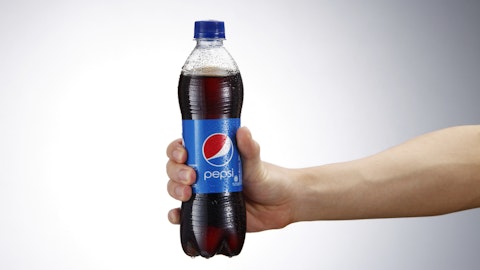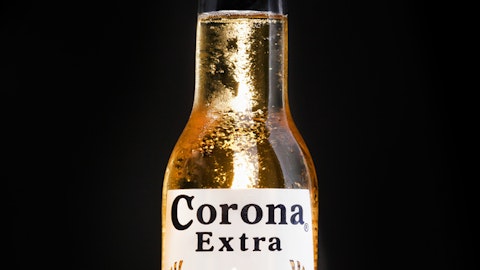Hedge funds and other investment firms run by legendary investors like Israel Englander and Ray Dalio are entrusted to manage billions of dollars of accredited investors’ money because they are without peer in the resources they use to identify the best investments for their chosen investment horizon. Moreover, they are more willing to invest a greater amount of their resources in small-cap stocks than big brokerage houses, and this is often where they generate their outperformance, which is why we pay particular attention to their best ideas in this space (see the details here). However, as investors cannot get enough of small-cap stocks in bull markets, this basket of stocks is also the first one to suffer from increased uncertainty and volatility. Nonetheless, hedge funds’ outperformance is not only limited to the small-cap space, considering that Goldman Sachs’ so-called VIP list (made up of the 50 most-owned stocks among hedge funds’ top ten holdings) outperformed the S&P 500 gauge on a quarterly basis 64% of the time from 2001 through 2015. That being said, let’s take a look at the hedge fund sentiment towards PepsiCo Inc. (NYSE:PEP).
PepsiCo Inc. (NYSE:PEP) was in 58 hedge funds’ portfolios at the end of December. PEP investors should pay attention to an increase in support from the world’s most elite money managers in recent months. There were 57 hedge funds in our database with PEP positions at the end of the previous quarter. At the end of this article we will also compare PEP to other stocks including Comcast Corporation (NASDAQ:CMCSA), Medtronic, Inc. (NYSE:MDT), and Cisco Systems, Inc. (NASDAQ:CSCO) to get a better sense of its popularity.
Follow Pepsico Inc (NASDAQ:PEP)
Follow Pepsico Inc (NASDAQ:PEP)
Receive real-time insider trading and news alerts
PepsiCo Inc. (NYSE:PEP) is not a beverage-only company like its main competitor in the beverage market, The Coca-Cola Co (NYSE:KO), in which 51 investors in our system were long on December 31, down by 3 quarter-over-quarter. PepsiCo rather is a global food and beverage company that has a wide portfolio of brands such as Frito-Lay, Pepsi-Cola, Tropicana and Quaker. In fact, the company’s snack food business and beverage business tend to act as complements to each other, which might represent a competitive edge over Coco-Cola and other competitors. Of course, PepsiCo’s beverage, food, and snack products are competing against products of other international beverage, food, and snack companies, so PepsiCo faces tough competition on multiple fronts. Nonetheless, the company has been successful in achieving strong organic growth in recent years despite facing extreme competition. By taking a quick glance at the company’s financial figures, one could come to the conclusion that PepsiCo Inc. (NYSE:PEP) is not doing great at the moment. For instance, PepsiCo’s total net revenue decreased to $63.06 billion in 2015 from $66.68 billion in 2014. However, one should keep in mind that the company’s non-U.S operations generated 44% of net revenue last year and that foreign exchange headwinds impacted PepsiCo’s net revenue growth by ten percentage points, mainly because of the Russian ruble, Venezuelan bolivar, Mexican peso, Euro, Brazilian real, and the Canadian dollar. For example, net revenue generated in Latin America decreased to $8.23 billion in 2015 from $9.43 billion registered a year ago due to 27% negative impact from unfavorable foreign exchange.
With all of this in mind, we’re going to review the recent action encompassing PepsiCo Inc. (NYSE:PEP), as well as look at several other aspects investors should consider when analyzing the company.




